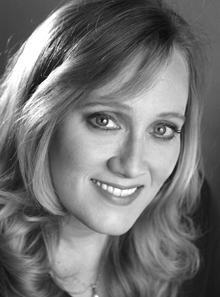
PLEASED AND DESPERATE Soprano Deborah van Renterghem was spine-tingling as would-be empress Vitellia in Emmanuel Music’s concert staging of Mozart’s La clemenza di Tito. |
By an odd coincidence, two recent events included two of Boston's best-loved singers in non-singing roles, artists who've been teamed in some of Boston's most memorable opera productions: baritone James Maddalena and soprano Susan Larson, essential members of the great Peter Sellars/Craig Smith stock company.Larson, who's retired from singing, was back at Emmanuel Music. Artistic director Ryan Turner's choice for this year's concert opera was Mozart's late opera seria, La clemenza di Tito ("The Clemency of Titus"), a moral tale of the Roman emperor and the virtue of forgiveness — he forgives even his attempted assassins. Mozart began this after he'd started The Magic Flute, and rushed to finish it before he finished Flute. The "dry recitatives" (very dry) were probably composed by his pupil, Süssmayr (most famous for completing Mozart's Requiem). And so since the stiff and lengthy recits are not by Mozart himself, Turner asked Larson to write — and read — a narrative connecting the musical numbers: shorter, more efficient, and, given Larson's acting skills, much livelier than the sung speeches of the recitatives.
Turner and the outstanding orchestra gave Mozart's underrated score its due — much of it, if not every note, Mozart at his best. One of the opera's greatest moments is a little trio in the first act. Vitellia wants to be empress, but when it looks as if Tito is not going to choose her, she sends her infatuated lover, Sesto, to kill his best friend. Suddenly, two courtiers arrive to congratulate Vitellia for being chosen empress! Oops. She's both thrilled and horrified. "Doesn't she look happy?," the courtiers sing, while Vitellia is both pleased and desperate to stop Sesto from perpetrating the plot. It's one of those uncanny Mozart moments when his music expresses opposite feelings simultaneously. Soprano Deborah van Renterghem, with her thrilling power and vibrant tone, was spine-tingling. Turner and the brilliant orchestra captured every nuance of Mozartean irony, and created a sense of through-lined grandeur for the whole.
Tenor William Hite made a sympathetic and earnest Tito. Mezzo-soprano Krista River, the torn Sesto, effortlessly tossed off the most famous and difficult aria ("Parto, parto"—"I'm going, I'm going!"). Rich-voiced mezzo-soprano Pamela Dellal was Sesto's noble friend Annio. Soprano Susan Consoli and baritone Aaron Engebreth fleshed out the cast. The Emmanuel chorus was superb, and special mention should go to clarinetist Eran Egozy and basset-horn player Diane Heffner for their spectacular obbligatos.
Maddalena, who recently re-created his original role of Richard Nixon in the Met's first production of John Adams's Nixon in China (more Sellars), appeared in another title role: Paul Bunyan, in the very first Boston production of Benjamin Britten's first opera, from 1941,when the young British composer was living in Brooklyn along with another ex-pat Brit, poet W. H. Auden, his librettist. As Bunyan, too mythic to actually appear on stage (or sing), Maddalena, off-stage and reciting into a microphone, was the stellar guest professional in this New England Conservatory student production, the first conducted (lovingly) by former Boston Lyric Opera music director Stephen Lord in his new capacity as director of NEC opera studies.